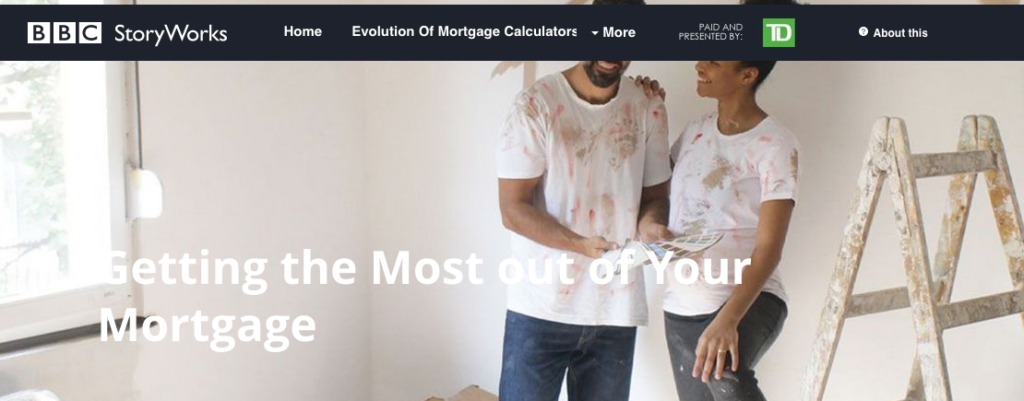The second article of six planned to appear on the BBC StoryWorks website in Canada has now been published. You can find it by clicking on the highlighted headline here: Strategies for a Low-Interest World.
As explained in the first instalment, the articles (written by me) looks at Covid-19 and the impact on the real estate and mortgage industry. The articles will appear every week and run into November. Later articles will look at the case for locking in to fixed-rate mortgages, the investing experience following Covid, optimum strategies going forward and close with retirement strategies in the age of Covid.
The second article just posted looks at why variable-rate mortgages may still be the optimum route for homeowners to go, seeing as interest rates seem destined to remain “lower for longer.” Mortgage rates are as low as anyone could reasonably have hoped to see in their lifetimes, but rock-bottom rates are also putting upward pressure on home prices. As noted in the first article, even prices of suburban and rural properties are rising, as the pandemic changes the supply/demand dynamics of where we work and live.
Rates are unlikely to spike upwards as long as the pandemic is a factor. Based on recent statements by central Banks around the world, it’s reasonable to expect interest rates will remain “lower for longer,” if not indefinitely at least for the foreseeable future. In mid-September the US federal reserve said rates won’t be raised before 2023.
Both fixed and variable rate mortgages are under 2%
In Canada, fixed and variable rate mortgages are being offered at less than 2%.
Over the past 40 years a variable rate mortgage has almost always been better during any 5-year period than a fixed-rate mortgage, says fee-only planner Jason Heath. “It makes sense, because with a fixed rate, you’re paying extra for the security of rates not rising, and rates have generally trended lower in Canada since the 1980s.”
Variable has paid off but the protection for going long with fixed is historically inexpensive
There are generational differences. Royal Lepage CEO Phil Soper says boomers have small mortgages or have already paid them off, so “why have a bunch of risk on the mortgage?” But young people with huge mortgages “can roll the dice by staying variable and be right more often than wrong.” Nervous home owners shouldn’t feel guilty going long and foregoing a 50 or 75 basis points saving: it can be sensible financial planning, Soper said in an interview.
Paying off a mortgage as quickly as possible was the preferred route taken by author-turned-mortgage broker Sean Cooper, who paid off his first home in his early 30s. His book Burn Your Mortgage revealed how he did it. It’s unlikely a Millennial’s first home will be their forever home, he says: “Being able to lock in your mortgage for five years with fixed-rate mortgages at record low mortgage rates is quite tempting.”
Some fixed-rate lenders have fairer penalties, providing the best of both worlds of record low rates and low penalties. “With mortgage rates almost certain to rise at some point in the future, I’d still pay down my mortgage, even in today’s low-rate environment, but you may not feel that way yourself,” Cooper says.


